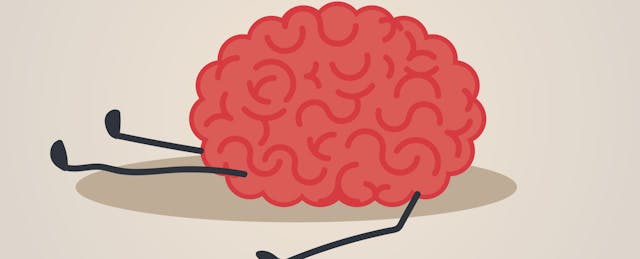A few years ago, journalist and podcaster Manoush Zomorodi hit a creative slump. After some reflection, she figured out why: Strange as it sounds, she wasn’t getting bored enough.
All the time she normally spent idling throughout the day was now filled with technology—namely, the distraction of her phone. She simply wasn’t getting the downtime she needed to be creative.
Starting in 2015, Zomorodi decided to do some unplugging, and she invited listeners of her podcast, Note to Self, to go on the journey with her in a challenge she called “Bored and Brilliant.” The idea was to become more thoughtful about the way technology influences our lives and to set some hard limits. Since then, she’s authored a book about her experiences, and co-founded a new company and podcast series to dive into the way tech shapes our lives.
At the ISTE 2019 conference in Philadelphia, Zomorodi spoke about the Bored and Brilliant challenge, as well as information overload, how her listeners responded and why science says boredom is actually good for the brain. What follows is a lightly edited sampling of her remarks.

Bored and Brilliant
I’ve never had issues coming up with weird creative ideas—that was my thing—and then I started really struggling. It wasn’t like writer’s block; it was like sand in my brain. I wanted to know: Did it matter that I was putting something into all those moments in the day or that I was never bored?
I grew up in a time when people said, “Only boring people get bored,” and I wondered if that were true, or if boredom served a purpose to us as humans. I spoke to neuroscientists and cognitive psychologists who told me that we can understand what’s going on in the brain when we ignite a network called the default mode. This is a neural network where we do our most original thinking and our problem solving.
It’s also where we do something called autobiographical planning. We literally tell ourselves the story of us. We look back on our lives—the highs and lows—and build a narrative as to why we’re sitting here right now and then we forecast into the future. We look where we want to go and then figure out how to get there.
But we can’t tap this awesome brainpower if we’re always tapping our phones. So I asked my audience if they would be interested in chaining their digital habits with me, to try to get more boredom into our lives, more mind wandering, more daydreaming. I thought a couple hundred people would sign up for this, but within 48 hours, 20,000 people had signed up. I thought: I’m so not a special snowflake. This is a thing that is happening and people are concerned about it.
To start—and this might seem a little perverse—we asked people to download apps that would measure how much time they were spending on their phones and how often they were checking them, because we all love to self-quantify. Collectively, we discovered that we were averaging around 2 hours a day on our phones; we were checking them around 60 times a day. Keep in mind, as a 15-year-old asked me at a high school I went to speak to, “Isn’t that a self-selecting group?” He was right. I estimate those numbers are on the low side. These were people who were more conscious of their habits.
How did we get them to be bored? Every day for one week, everyone got a newsletter with an assignment and a mini podcast that explained the science and technology behind what we were asking people to try for the day. My favorite day was day three, called “Delete That App.” The idea wasn’t to quit Facebook or anything radical. It was just to take the app that was driving you the craziest off your phone, just for the day, so that it wasn’t accessible.
The message was not: “tech bad, turn it off.” The message was: How can we be more purposeful so that the tool is enhancing our lives, rather than becoming a task master? Emerging research tells us that technology is affecting the way our brains work. A decade ago, we shifted our attention at work about every three minutes. Now we shift our attention every 45 seconds—and we do it all day long.
At the end of the experiment, 90 percent of participants cut down on their minutes. But to me, it was the stories that resonated. One guy wrote me and said, “I feel like I’m waking up from a mental hibernation.” This project was cited in numerous academic papers despite the fact that our data was rather unscientific. It’s extraordinary how a little bit of neuroscience and personal data gave people the permission they were seeking to just think and reflect a little more.
Information Overload
For the next project, I wanted to tackle all the information coming out of our devices. About 40,000 people signed up for Infomagical. This was a week of experiments designed to help people find focus and do something with all the information they consume. Those of us who suffer from information overload are gluttonous. There is not a newsletter or a link where we don’t think: This could unlock all the information that I need.
Eighty percent of participants reported physical symptoms from information overload; 65 percent thought it was affecting their sleep, 45 percent thought it was giving them headaches. And, my favorite statistic: 30 percent said that information overload was making their eye twitch.
Why do we do this?
People told us, “I don’t want to miss something that might inspire me.” Or, “I feel the need to always stay up to date so I’m not embarrassed if something comes up in conversation.” Or, “I am deeply convinced that I should be able to accomplish more in a day than I would ever expect of any other person.”
When I described this compulsion, to keep swiping and clicking, to neuroscientist Daniel Levitin, he explained that we have physiological limitations.
“Every time you shift your attention from one thing to another, the brain has to engage a neurochemical switch,” he said. “It uses up nutrients in the brain to accomplish that. So if you’re attempting to multitask—doing 4 or 5 things at once—you’re not actually doing 4 or 5 things at once, because the brain doesn’t work that way. Instead, you’re actively switching from one thing to the next, depleting neuro resources as you go.”
The average person switches tasks on a computer 566 times a day—burning through all that glucose. And that’s when you find yourself lying on the floor looking at Pinterest pictures of sofas. Because you’ve literally burned through your capacity to make decisions about how you want to spend your time.
We asked people to reset their information expectations by choosing an information goal for the week. For that one week, they would only consume information that got them to that goal. So, do you want to be more creative, feel more knowledgeable about a particular subject, be more up to date on the news, or be more in touch with family and friends? Or just more in tuned with yourself? Psychologists call this “sticking to the schema,” and it’s been proven to help improve your memory.
At the end of every day we checked in with our participants via text. At the end of that week, 71 percent of our participants reported feeling less overwhelmed. But again it was the stories that really got me. There was one woman who chose French as her information goal and she only watched French-language YouTube, cooked French recipes and left me voicemails in French at the end of every day. She said she had learned more French in that one week than she had taking an adult education class once a week for the last 20 years.
I think we need to set goals before we go online and forget why we were there in the first place.
How to Be Bored
After that first project, I wrote a book called “Bored and Brilliant” and went on a book tour. It was so interesting to hear the topics that came up over and over again. It was parents battling with kids over screen time. It was employees dealing with workplace burnout. And it was young adults dealing with depression and anxiety.
I also heard from a lot of teachers using this book in their classrooms because there’s not much curriculum for this stuff. Smart teachers know that it’s not either on or off. That’s not the answer. Technology is amazing—it connects us to more information and more people than we have ever seen possible in the history of the world.
But I think we also need to teach how and why we behave the way we do with our technology. The business models are dependent on getting us to give them as much data and as much time with our eyeballs as possible.
So many teachers have told me that they now have to teach things in the classroom that they never had to teach before, including human things like how to have a conversation, how to listen to someone, how to make eye contact.
And yes, how to be bored.


